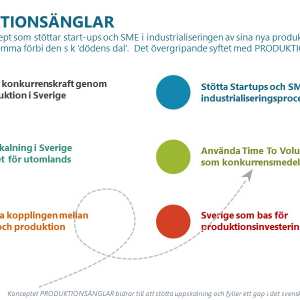Cost driven green kaizen
2017 – 2018
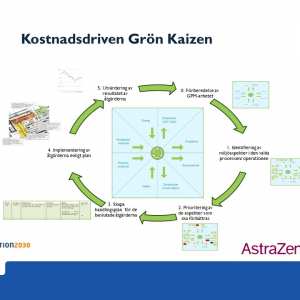
Project time: 2014 – 2017
Budget: 10 800 000 SEK
Funding: SIP Produktion2030
Project objectives were completed.
1)Proposals for design rules and educational materials were prepared and made available to industry
2)Knowledge of non destructive testing aws imcreased and knowledge transferred betweem industry anad academia production processes and additive manufacturing
3)Demonstrators were produced that show shortened lead times and weight reduction
The project demonstrated key points of Additive manufacturing such as weight reduction and simplified manufacturing of complex parts. Improved knowledge of non-destructive testing methods has provided insights on how to improve quality control. The results were disseminated in training activities and seminars at the participating companies and in activities with parties outside the project. The results and the educational activities combined will be used to promote and facilitate the implementation of additive manufacturing within Swedish manufacturing industry.
The activities were completed according to the plan with some delays. The collaboration
between the parties exceeded the expectations and initiated new sub projects.
There is a significant interest for educational activities and there is a need to package the results from the project in a manner that facilitates the implementation of additive manufacturing in Swedish industry.
A challenge lies in the scheduling of activities due to the many parties involved especially in the production and testing of samples, which led to delays in the project.
2017 – 2018

2017 – 2019
Every manufacturing company measure and control production performance with a system of KPIs. The aim of the SMART-PM project is to investigate and demonstrate new ways of collecting data, transforming data to information and introducing new decision tools based on valid information and economic models of the production systems.
2018 – 2020
2017 – 2018
2017 – 2020
2013 – 2016

2016 – 2017
2016 – 2016
2014 – 2014
2014 – 2018
2016 – 2016
Robotic solutions with autonomous decision-making software supporting on-demand production using resource pools.
2021 – 2024
2016 – 2018
2014 – 2017
2015 – 2016
2016 – 2019
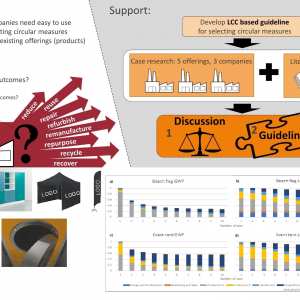
2015 – 2016
Tooling constitutes a significant part in the economical investment of the hot stamping process. Significant benefits in production economy and environmental benefits can be attained by improving the tribological performance in hot forming operations of automotive components. The main idea of this project is to create tailored tool surfaces on dies made from cheaper and easier to manufacture tool steel for the hot stamping of ultra-high strength steels.
2015 – 2018
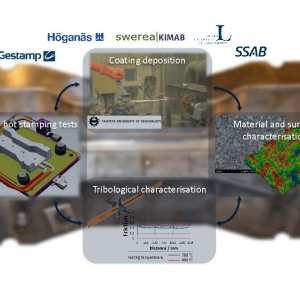
2016 – 2016
The aim of the project is to demonstrate utilization of additive manufacturing for copper-based products and process solutions and faster adaption
2016 – 2018
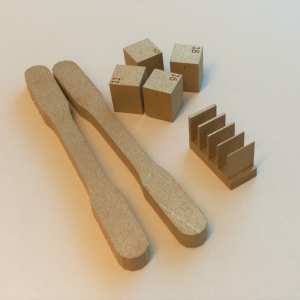
2013 – 2016
2017 – 2018
2015 – 2015
2015 – 2016
RemProLife aims at improving the use of life-cycle information to achieve more efficient remanufacturing from economic and ecological perpectives.
2013 – 2016
2014 – 2017
Increased sustainability and cost effectiveness through improved strategic decision-making in production issues based on new metrics system for production and development.
2015 – 2017
2013 – 2017
The project focuses on economic and environmental sustainability and increased industrial competitiveness.
2017 – 2018
2015 – 2016
The main idea of the project is to investigate and demonstrate how the digitalized and proven systems and technologies of the Process Industry, like CPAS, can be used in DM to improve competitiveness and drive growth
2017 – 2019
The project aims to develop a new cyber-physical framework to realize extremely flexible production.
2021 – 2024
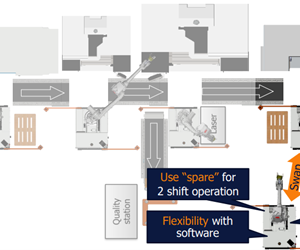
2014 – 2017
With globalization and other megatrends as demographic changes and climate change, more knowledge is needed regarding production in an international perspective. PADOK Study Visit in India 2016 have given an increased knowledge regarding how production is conducted in India, some of the challenges producing companies in that region is facing and how Swedish companies interested in investing in production in India could act to establish themselves in the region.
2016 – 2016
2017 – 2020
2017 – 2021
2017 – 2018
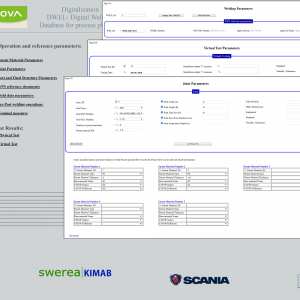
2014 – 2016
Reduced lead times and improved performance for tooling through innovative manufacturing and assembly strategies as well as optimised design enabled by use of additive manufacturing (AM).
2016 – 2018
2014 – 2017
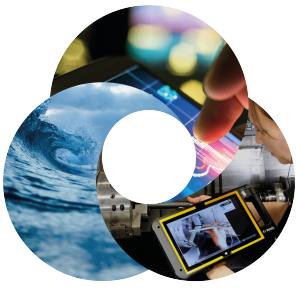
2015 – 2015
2017 – 2018
2017 – 2018
2017 – 2018
2017 – 2018
2015 – 2017
2016 – 2016
The SAPPA project is about innovative cloud-based predictive and preventive maintenance systems, improving availability of products and production systems.
2014 – 2016
2015 – 2016
2015 – 2016
2014 – 2017
2015 – 2016
Assessing the Robustness of the Laser Powder Bed Fusion Process
2021 – 2024
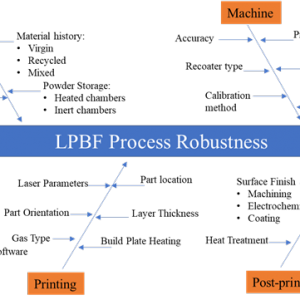
2015 – 2018
2016 – 2018
2015 – 2016
This project aims to contribute to the development of future ERP-systems. The project will explore how to offer work, redefine work roles and challenge companies to make use of advanced systems support and the technology within and around these. Overall, the project aims to contribute to the development of both the next generation of ERP-systems and a complementary change in the way firms see upon work organization, so that technology can support and meet the needs of the humans within organisations rather than enforcing structures upon them.
2019 – 2019
2015 – 2016
2015 – 2016
2016 – 2017
2013 – 2017
2015 – 2016
2017 – 2018
